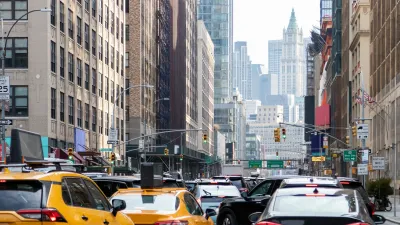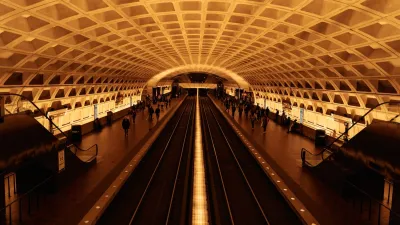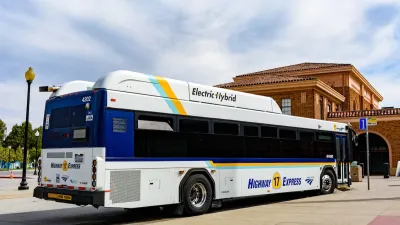Congestion pricing is really just a regressive tax thats hurt the poor, argues one New York Assemblyman. If government wants to improve transit and the environment, it should simply tax wealthy Americans more to do it.
"[T]he assault in Albany against the Bloomberg plan was led by...Assemblyman Richard L. Brodsky, whose father, it is worth noting, was an organizer for an engineers' union and whose mother worked in the 1948 Progressive Party campaign of Henry Wallace. They reared their son with the principles of the Progressive movement. Thus Mr. Brodsky, 61, in an interview at his Colonial-era home here, said he had long opposed "pricing mechanisms as the preferred way of solving social problems." The reason: these schemes put the burden for paying the fees on blueblood and blue collar alike, he said.
"I don't believe public places should be distributed based on an ability to pay," Mr. Brodsky said, stretching his suede cowboy boots out from his armchair while sipping a glass of tea. "In the end I'm a progressive before I'm an environmentalist."
However far Mr. Brodsky - or for that matter his entire '60s generation - may have strayed from younger, idealistic stirrings, combating traffic congestion with fees has for more than a decade seemed to him, well, regressive. The people who would have borne the brunt were working- and middle-class stiffs in Brooklyn, Queens and the Bronx who for whatever reason feel they need to take a car into the area below 60th Street on workdays."
""These pricing mechanisms try to modify behavior of people who can't afford to do what it is we want them to do," he said."
"There's a fair argument to be made that we already have pricing mechanisms - subway fares and bridge tolls - that burden rich and poor alike. But opponents like Mr. Brodsky say that if a relatively novel twist like congestion pricing succeeds, governments desperate for money could start charging people for taking a walk in a city park or entering a library."
FULL STORY: Congestion Pricing: Just Another Regressive Tax?

Alabama: Trump Terminates Settlements for Black Communities Harmed By Raw Sewage
Trump deemed the landmark civil rights agreement “illegal DEI and environmental justice policy.”

Study: Maui’s Plan to Convert Vacation Rentals to Long-Term Housing Could Cause Nearly $1 Billion Economic Loss
The plan would reduce visitor accommodation by 25% resulting in 1,900 jobs lost.

Planetizen Federal Action Tracker
A weekly monitor of how Trump’s orders and actions are impacting planners and planning in America.

Federal Homelessness Agency Places Entire Staff on Leave
The U.S. Interagency Council on Homelessness is the only federal agency dedicated to preventing and ending homelessness.

Restoring Northern India’s Himalayan ‘Water Temples’
Thousands of centuries-old buildings protect the region’s natural springs and serve as community wells and gathering places.

Milwaukee to Double Bike Share Stations
Bublr Bikes, one of the nation’s most successful, will add 500 new e-bikes to its system.
Urban Design for Planners 1: Software Tools
This six-course series explores essential urban design concepts using open source software and equips planners with the tools they need to participate fully in the urban design process.
Planning for Universal Design
Learn the tools for implementing Universal Design in planning regulations.
Caltrans
Smith Gee Studio
Institute for Housing and Urban Development Studies (IHS)
City of Grandview
Harvard GSD Executive Education
Toledo-Lucas County Plan Commissions
Salt Lake City
NYU Wagner Graduate School of Public Service





























